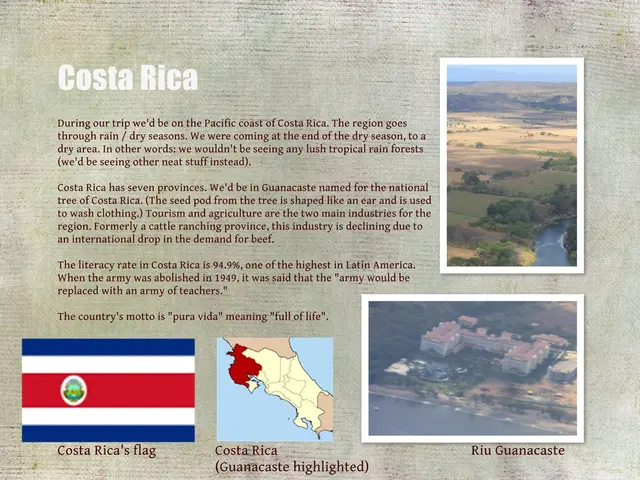Halt at the Hectic Hour: Delving into the Tokyo Traffic Jam Phenomenon
Intense traffic congestion in Tokyo during peak hours - Gridlock in Tokyo's rush hour traffic
In the bustling heart of Tokyo, rush hour traffic is a force to be reckoned with. But what exactly triggers this mammoth demonstration of metal and motion?
- Population Density and Urbanization: Tokyo boasts one of the highest populations on the planet. Couple this with the rapid expansion of urban areas, and you've got roads teeming with vehicles, especially during the daily commute.(Enrichment Data: Tokyo's urbanization and population density significantly contribute to the heavy traffic during rush hour)
- Infrastructure and Highway Layout: The Shuto Expressway might impress, but Tokyo's infrastructure may not always meet modern demands. This disparity often intensifies traffic congestion.(Enrichment Data: Tokyo's infrastructure and highway design don't always accommodate the current traffic volume)
- Business Engines Churning: As a significant economic hub, Tokyo hosts numerous industrial and commercial centers. The resulting commotion, created by the movement of goods and people, fuels heavy traffic.(Enrichment Data: Tokyo's economic and commercial activities contribute to congestion during rush hour)
- Traffic Regulation and Management: Inefficiencies in traffic management, like ill-timed traffic signals or malfunctioning control devices, can cause traffic flow disruptions, exacerbating congestion.(Enrichment Data: Problems with traffic control and management are factors that worsen traffic congestion during rush hour)
The consequences of jammed roads during Tokyo's peak hours are far-reaching:
- Time Delays and Decreased Productivity: Clogged streets result in substantial travel delays, impacting personal and professional productivity. Prolonged commuting times can chafe at work schedules and commitments.(Enrichment Data: Heavy traffic leads to delays and productivity losses)
- Environmental Degradation: Added congestion sparks increased emissions of pollutants, contributing to air pollution and environmental damage.(Enrichment Data: Traffic congestion impacts the environment negatively)
- Economic Burdens: Businesses bearing the br unt of congested roads face increased operational costs, particularly for those relying on prompt deliveries or on-time services. Additionally, transport costs escalate, while the overall economic efficiency of the city diminishes.(Enrichment Data: Traffic congestion negatively impacts the economy)
- Safety Risks: The risk of accidents surges in congested traffic, with bicycle accidents common during rush hours, often due to high traffic volume.(Enrichment Data: Congested roads heighten safety concerns)
To tackle these issues and clear the way, Tokyo might adopt the following strategies:
- Infrastructure Boost-up: Modernizing road designs, developing public transportation systems, and expanding options.
- Smart Traffic Management: Implementing advanced traffic control systems, and optimizing the timing of traffic signals.
- Promoting Alternative Transport Modes: Encouraging the use of bicycles or public transportation to decrease vehicle numbers.
- Intelligent Traffic Guidance: Utilizing technology to optimize traffic flow, and reduce congestion.(Enrichment Data: Possible solutions to mitigate the effects of rush hour traffic in Tokyo include improving infrastructure, enhancing traffic management, promoting alternative modes of transport, and utilizing technology for intelligent traffic guidance)
In the context of Tokyo's vibrant lifestyle and cultural-travel opportunities, navigating its streets during rush hour provides a unique insight into the challenges faced by this metropolis. Whether you're a traveler seeking a taste of the urban rush or a local commuting to work, understanding the city's traffic issues is a crucial part of both personal and cultural experiences.
Moreover, addressing rush hour congestion in Tokyo not only improves the daily commute but also contributes to the city's economic growth, environmental sustainability, and overall safety, thereby enhancing the quality of life for both residents and visitors alike.








